National
FG says it will set aside over 1.2m metric tonnes of wheat for National Food Reserve
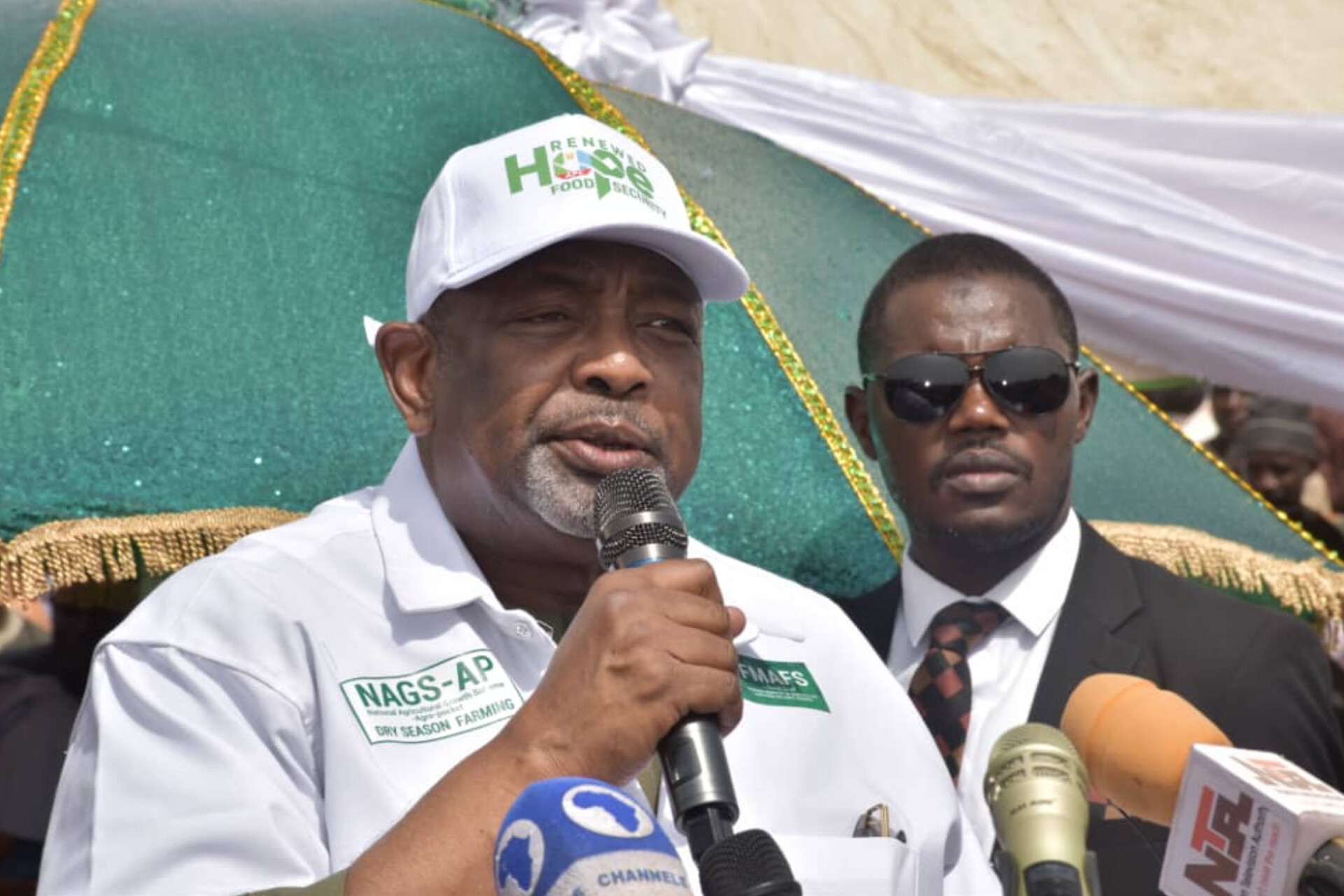
By Ahmed Rufa’i, Dutse
In its effort to curtail overdependence on importation of Wheat from foreign countries, the federal government has projected to add over 1.2 million metric tonnes to the national food reserve at the end of 2023/2024 dry season wheat farming.
Minister For Agriculture and Food Security, Senator Abubakar Kyari made the disclosure on Saturday while flagging off the 2023/2024 national Wheat productions policy at Kadume village of Hadejia local government, Jigawa state.
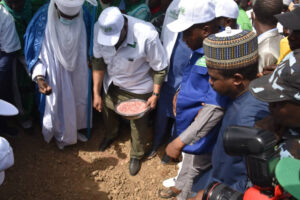
He indicated that over 100,000 hectres would be cultivated this year to limit the country’s dependence on importation of the product.
Senator Abubakar Kyari said over 250, 000 farmers are to benefit from the federal government support to achieve production of over 1,250,000 metric tones across the nation.
The minister explained that, the flagging off of the program is a key activity in the implementation of federal government food security policy.
He noted that 100,000 hectres are targeted under the 2023/2024 national dry season Wheat productions policy, and a special package for 50 percent subsidy was designed for the registered farmers and their cluster.
“The registered farmers will be given free seeds while other inputs will be sold to them at 50 percent subsidy, aims at enhancing their capabilities to implement the program.
“Under the Federal Government policy we want improve our crops yields by 20 percent this year, with Wheat outputs targeted at 400,000, to 500,000 tones. Equally we will gradually continue to improve our irrigation facilities to diversify crops production for achieving food security, Jobs creation, growth and development “.
The Minister commended the commitments demonstrated by Jigawa state government and it’s farmers which proved to federal government that the state is a key and a reliable partner in achieving federal government food security policy, jobs creation and poverty eradication.
In his speech the JIgawa State governor, Malam Umar Namadi has called on the federal government to accelerate the completion of the Hadejia Valley Irrigation Project with potential irrigable area of over 25,000 hectares.
The governor said the area has the capacity to significantly deliver the Food Security objective of President Tinubu’s Renewed Hope Agenda.
Malam Umar Namadi explained that the Hadejia Valley Project, which was initiated by the Late Shagari Administration in the early 1980s, is still less than 25% completed after almost four decades.
According to him “Following a flag-off of the project performed in 2018, it is noteworthy that earlier this year, former President Muhammad Buhari has commissioned the successful completion of a segment of the Project covering about 6,000 hectares”.
The governor maintained that “There is no doubt that has significantly contributed to our quest for food security, job creation, and economic diversification. Despite this significant stride, however, there is still a long way to go considering the Project’s potentials. It is my prayer that the Tinubu Administration will make history by completing the project 100%.”
The governor note that the elaborate flag-off event as blessed by the presence of all these dignitaries underscores the priority attached to the Program which is critical to the attainment of State’s and National Development objectives of food security, economic diversification, and empowerment of the citizens.
He added that as many of us are aware, the Wheat Development Program an integral part of the Renewed Hope Agenda of President Bola Ahmed Tinubu aimed at accelerating the Nation’s drive to achieve food security.
It also perfectly aligns with several aspects of our 12-Point Agenda for Greater Jigawa particularly as it affects food security, economic diversification, job creation, provision of sustainable means of livelihoods for the citizens, and overall poverty reduction.
Accordingly, both the Federal Government and the Government of Jigawa State have accorded a topmost priority to the Program for which all hands would be on deck to ensure its success.
“Over the years, Jigawa State has successfully pursued an Agricultural Transformation Agenda which has significantly contributed to our Nation’s quest for food security and economic diversification”.
Malam Namadi stated further that, “Today, Jigawa State is a leading producer of rice, sesame, and hibiscus among many other crops. One of the resolutions under our 12-Point Agenda is to ensure full exploitation of the Jigawa State’s agricultural potentials through all-year round production by bringing more of our fadama lands under cultivation, gradual expansion of our irrigation facilities, and mobilizing our teeming youths into Agriculture and its entire value chain”.
He emphasized that the Wheat development programme partnership with the Federal Government is in line with state the government’s resolve to sustain progress and build on previous achievements of the agricultural transformation agenda. “It is in line with our objective to sustainably improve the socioeconomic well-being of our citizens.”
“I am also truly delighted by the choice of Jigawa State as the primary focal State for the Wheat Development Program. It is common knowledge that Jigawa State is the heart of wheat production in Nigeria with potential to provide up to 200,000 hectares for wheat production. “
National
At Achebe Forum, Obasanjo Labels Nigeria a ‘Failing State’ Criticizes Tinubu’s Leadership
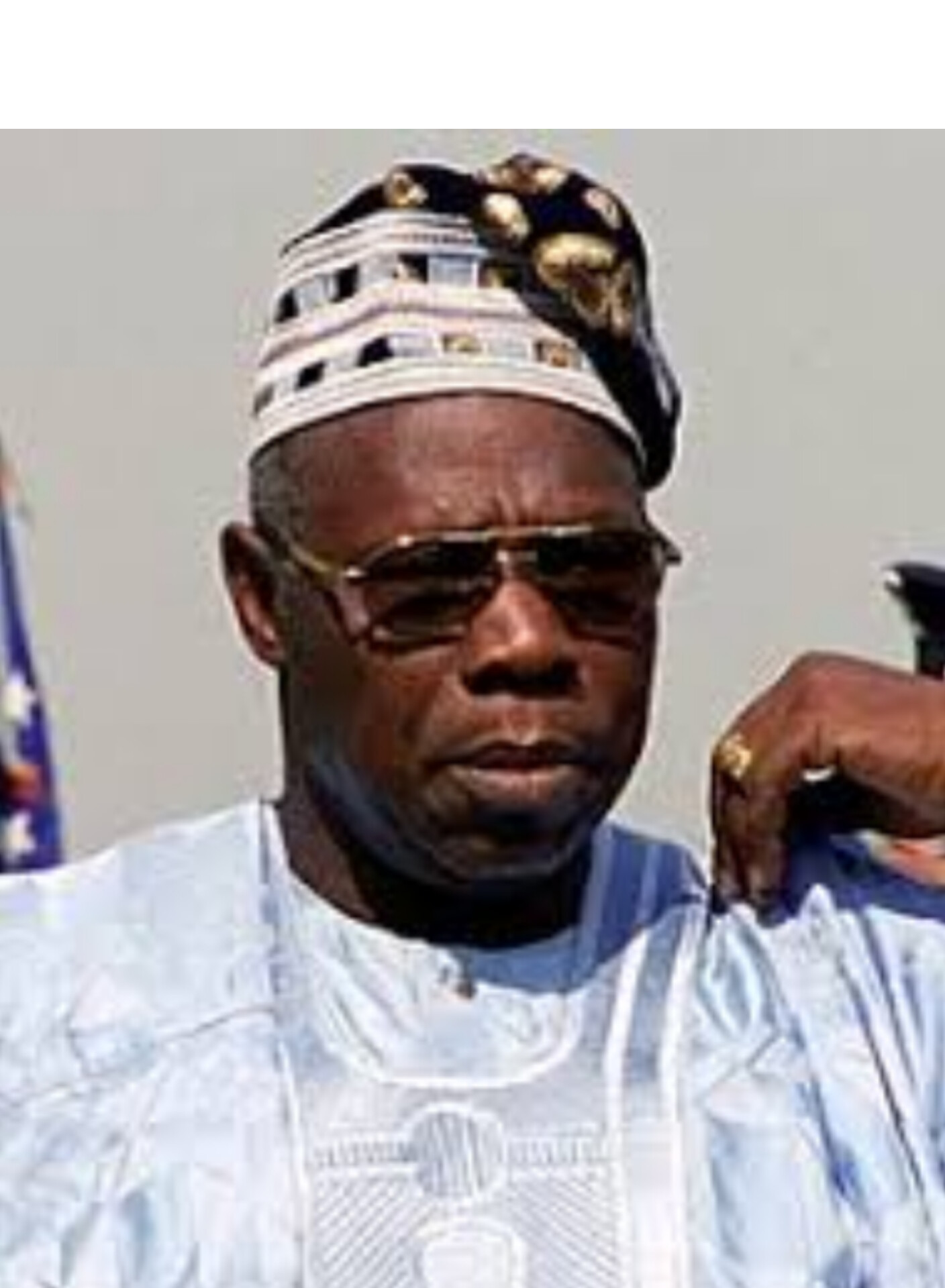
Former President Olusegun Obasanjo has expressed sharp criticism of President Bola Tinubu’s administration, stating that Nigeria’s decline is now evident to “every honest observer.”
Speaking at the Chinua Achebe Leadership Forum at Yale University in the U.S., Obasanjo attributed the country’s deteriorating state to leadership failure, pointing specifically to Tinubu’s governance, which he referred to as “Baba-go-slow and Emilokan.”
In his keynote address titled “Leadership Failure and State Capture in Nigeria,” Obasanjo highlighted that pervasive corruption and mismanagement have worsened Nigeria’s challenges, driving the country deeper into insecurity, division, and underdevelopment.
He quoted the late writer Chinua Achebe, who in his book The Trouble with Nigeria argued that the country’s fundamental problem is a failure of leadership, not a flaw in its people or resources. According to Obasanjo, this diagnosis remains as relevant today as it was over 40 years ago.
Obasanjo cited works by American experts Robert Rotberg and John Campbell, who have characterized Nigeria as a “failed state.” Their argument, he noted, suggests that Nigeria’s inability to maintain security and stability has serious implications for Africa and the world at large.
Additionally, the former President described “state capture” as a pressing issue in Nigeria, where powerful individuals and groups exploit government resources and policies for personal gain. Obasanjo argued that this corruption undermines national interests, with influential elites shaping the country’s legal and economic systems to benefit themselves. Such practices, he warned, compromise public welfare, affecting the quality of education, healthcare, and infrastructure development.
In reflecting on Achebe’s legacy, Obasanjo praised the late author’s commitment to truth and the moral foundation he established for Nigeria. He urged Nigerians and the international community to recognize the dangers of state capture and work towards restoring a governance model that prioritizes the public good.
National
Sule Lamido, Shehu sani disagree over National Security Adviser
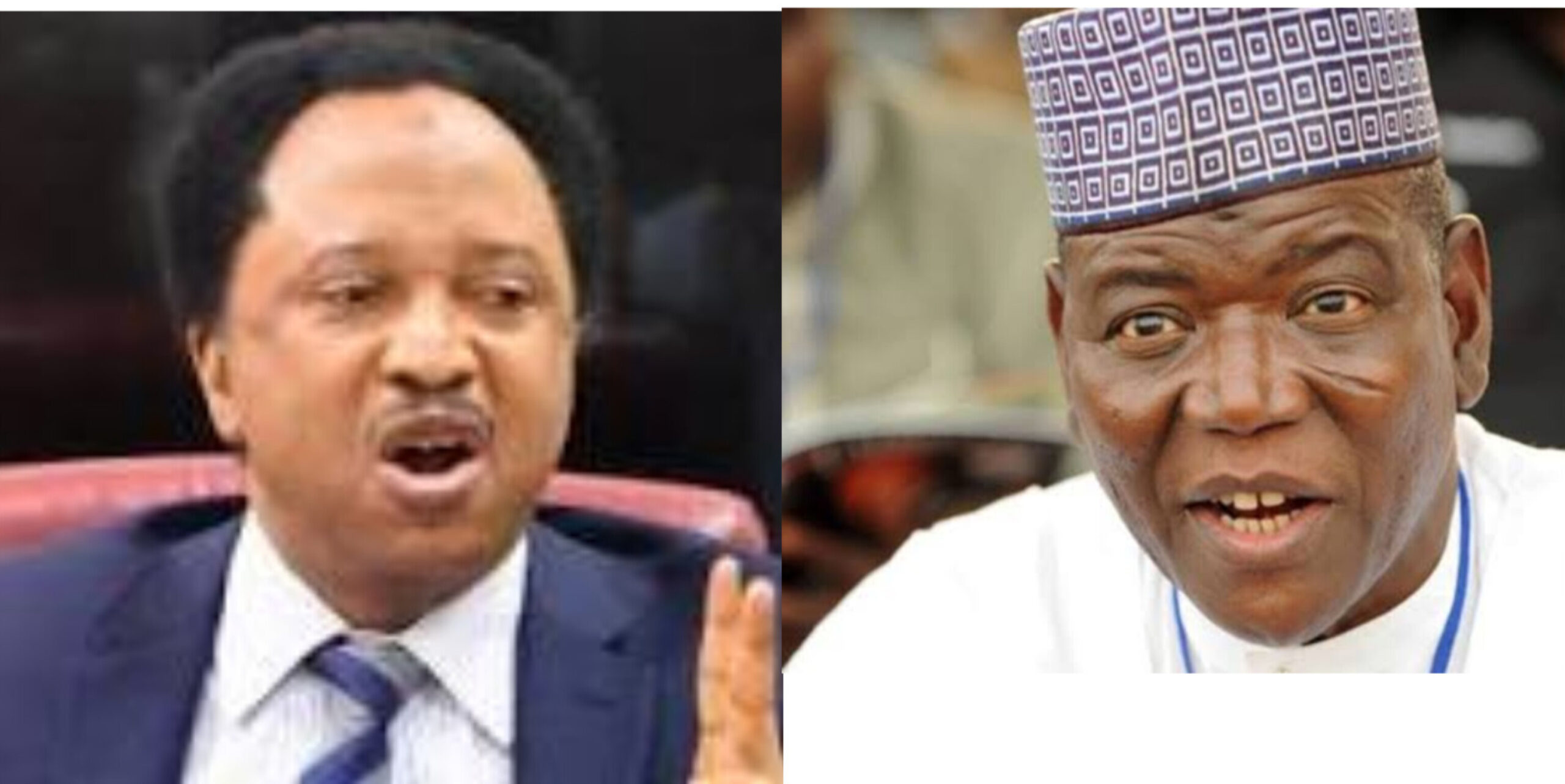
The senator who represented Kaduna Central Senatorial District in the 8th National Assembly, Shehu Sani has disagreed with a former Governor of Jigawa State, Sule Lamido over national security issues
Lamido had taken a strong position against the current National Security Advisor (NSA), Nuhu Ribadu accusing him of compromising his professional integrity and acting more like a spokesperson for President Bola Tinubu than fulfilling his constitutional role.
Sani advised Lamido to at least appreciate how the Tinubu led Administration tackled insecurity instead of politicizing it in his comment on the National Security Adviser.
Ribadu who was basking in the euphoria of the recent claims of decimating the insurgents cautioned anyone “not to dare Tinubu”, espercially the new Lakurawa Insurgents a development which infuriated the former governor of Jigawa State and a Chieftain of the Peoples Democratic Party,(PDP), prompting him to take to his verified facebook wall to describe the NSA as “loquacious, flippant and qualified to have been Tinubu’s Minsiter of Information instead of NSA.”
Lamido Criticizes NSA for Sycophantic Behavior, Urges Focus on Duties.
Lamido in his comment had expressed concerns over the NSA’s behavior, particularly his past actions as the Chairman of the Economic and Financial Crimes Commission (EFCC) under President Olusegun Obasanjo. Lamido reminded Nigerians of the NSA’s controversial remarks, including his public labeling of prominent governors—such as Tinubu, Kalu, and Akume—as the “most corrupt.” Lamido pointed out the stark contradiction between the NSA’s earlier criticisms and his current position, serving under the same figures he once condemned.
The former governor called the NSA’s decision to join the administration of President Tinubu—a leader he previously described as corrupt—a “singular mistake,” one that Lamido believes has tarnished the NSA’s credibility and character. “You are not a spokesperson for the President, you are a National Security Advisor,” Lamido emphasized, urging the NSA to return to the professionalism that has historically defined the role.
Lamido argued that previous holders of the NSA position, including the late Umaru Shinkafi, General Gusau, and Colonel Dasuki, all displayed discipline and a low profile, focusing on security matters without resorting to public displays or sycophantic behavior. Lamido lamented that the current NSA’s behavior reflects a departure from this standard, pointing to his increasingly vocal and partisan approach.
Rather than fulfilling his duties as an anonymous and diligent security advisor, Lamido claimed that the NSA’s moral dilemma and excessive displays of loyalty to the president have shifted him into the role of a “Minister of Information,” undermining the neutrality and importance of his position.
In closing, Lamido urged President Tinubu to allow his NSA to regain focus, remove his fears, and return to the professional standards expected of someone in such a sensitive and critical role. The criticism continued to ignite debates about the role of the NSA and the expectations of public office holders in Nigeria, with many calling for greater transparency and consistency from those in power.
Reacting, Shehu Sani countered Lamido in a statement on Friday in Abuja, saying there should be a credit and a commendation for an administration that inherited multi-faceted security challenges ,but which has been reduced to the barest minimum, wondering how the elderly statesman failed to acknowledge the many triumphs of government in bandits hotbed regions in the north.
Sani who served in the upper legislative Chamber in the 8th National Assembly said, he witnessed to the appropriation budget allocated to security which unfortunately did not abate security challenges before now, expressing that Nuhu Ribadu has achieved what many of his predecessors have failed to accomplish despite the hundreds of billions spent in the name of defence and security in the past;
According to him, bandits have been neutralized to a large extent, thus encouraging government in this direction until total victory should have been ideal rather than playing haywire politics which he said may not help the yet-volatile situation in the North.
He said: “Neutralisation of top bandit leaders, end to mass abductions of students in northern schools,
“Securing rail lines and major northern highways hitherto notorious for kidnappings. The prompt response to terrorist attacks on power lines is worth mentioning.
“Security challenges are not over but in all indices of comparison, he has performed better and set unprecedented records. His political critics are fully entitled to their views ,but his delivery on his mandate is unparalleled.”, Sani concluded.
National
Concerned Religious Prayer Forum Responds to Criticism of National Prayer Initiative
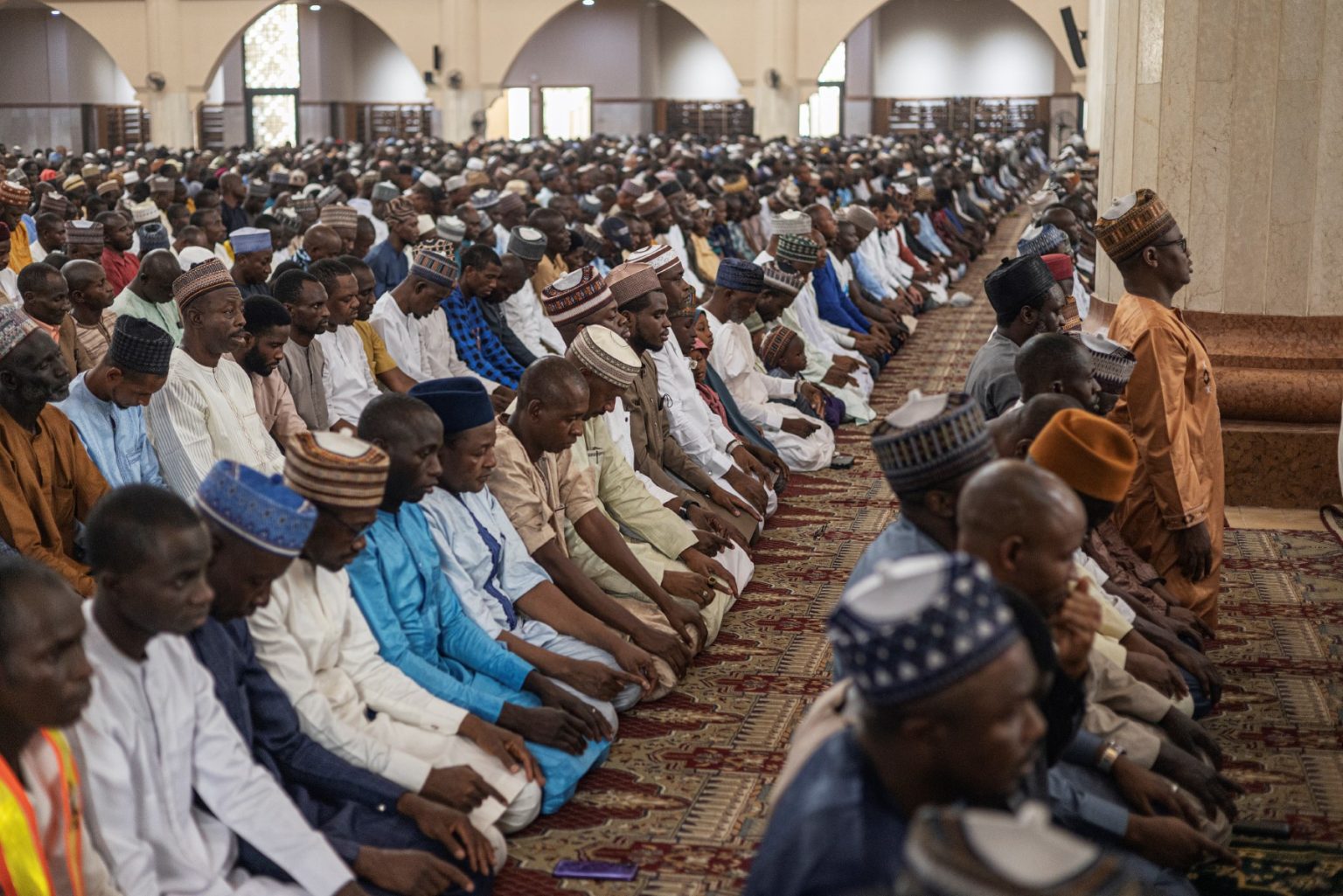
The Concerned Religious Prayer Forum has issued a statement clarifying its mission and responding to recent criticisms surrounding its seven-day national prayer initiative.
Established as a non-governmental organization on January 9, 2024, the Forum emphasizes that it is an independent group composed of citizens motivated by a shared desire to promote peace, unity, and prosperity in Nigeria.
The initiative has drawn scrutiny, particularly due to its involvement of high-profile figures, including First Lady Senator Oluremi Tinubu and National Security Adviser Nuhu Ribadu, as leaders of the prayer effort.
In the statement, Director General, Chief Segun Balogun Afolorunikan of the Forum reiterated that the prayer campaign is not government-driven or politically motivated, but rather a spiritual call for Nigerians to come together and seek divine intervention for the country’s challenges.
The Forum stated that it was not seeking political endorsement but instead believed that the involvement of such respected figures would inspire broader national participation.
Citing religious scriptures, the Forum stressed the role of prayer in supporting and strengthening efforts for national progress.
The Bible, according to 2 Chronicles 7:14, encourages prayer as a means of healing and unity: “If my people, who are called by my name, will humble themselves and pray and seek my face… then I will hear from heaven, and I will forgive their sin and heal their land.”
Similarly, the Quran in Surah Al-Baqarah (2:186) reminds believers that “I respond to the invocation of the supplicant when he calls upon Me.”
The Forum further addressed critics who questioned the efficacy of prayer in resolving the nation’s issues, insisting that divine intervention does not replace the need for diligent work but complements the efforts of the people. “This initiative is not about replacing hard work but about seeking spiritual guidance and collective unity to overcome the challenges facing the nation,” the statement read.
Encouraging all citizens and leaders to support the prayer initiative, the Forum called for unity in Nigeria’s pursuit of peace and prosperity. It urged Nigerians to set aside differences and work together in both practical and spiritual ways to help heal and build the nation.
The Concerned Religious Prayer Forum concluded its statement by inviting Nigerians to join in prayer, stating, “As we strive for national progress, prayer continues to serve as a catalyst for peace, growth, and development in Nigeria.”
-

 Crime1 year ago
Crime1 year agoPolice nabs Killer of Varsity Lecturer in Niger
-

 News10 months ago
News10 months agoFCT-IRS tells socialite Aisha Achimugu not to forget to file her annual returns
-

 Appointment1 year ago
Appointment1 year agoTinubu names El-Rufai, Tope Fasua, others in New appointments
-

 News From Kogi1 year ago
News From Kogi1 year agoINEC cancells election in 67 polling units in Ogori-Magongo in Kogi
-

 News From Kogi1 year ago
News From Kogi1 year agoEchocho Challenges Tribunal Judgment ordering rerun in 94 polling units
-

 News1 year ago
News1 year agoIPOB: Simon Ekpa gives reason for seperatists clamour for Biafra
-

 Metro8 months ago
Metro8 months ago‘Listing Simon Ekpa among wanted persons by Nigeria military is rascality, intimidation’
-

 News10 months ago
News10 months agoKingmakers of Igu/ Koton-Karfe dare Bello, urge him to reverse deposition of Ohimege-Igu
